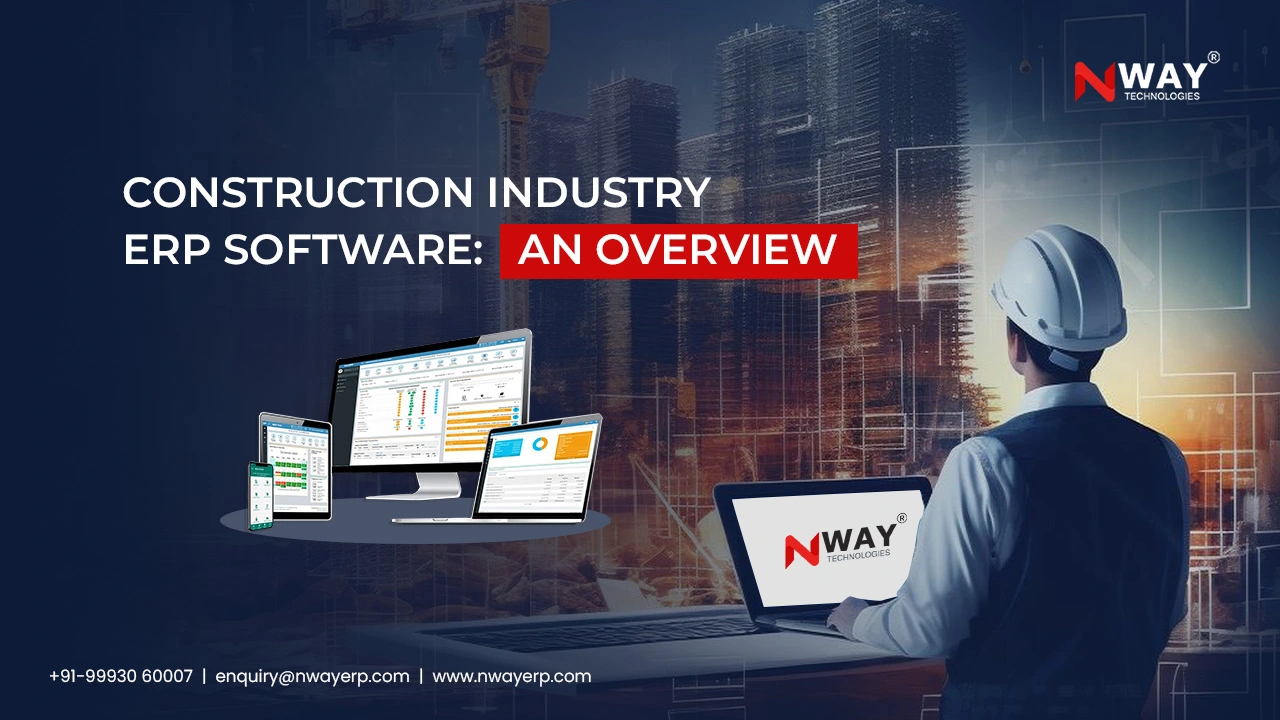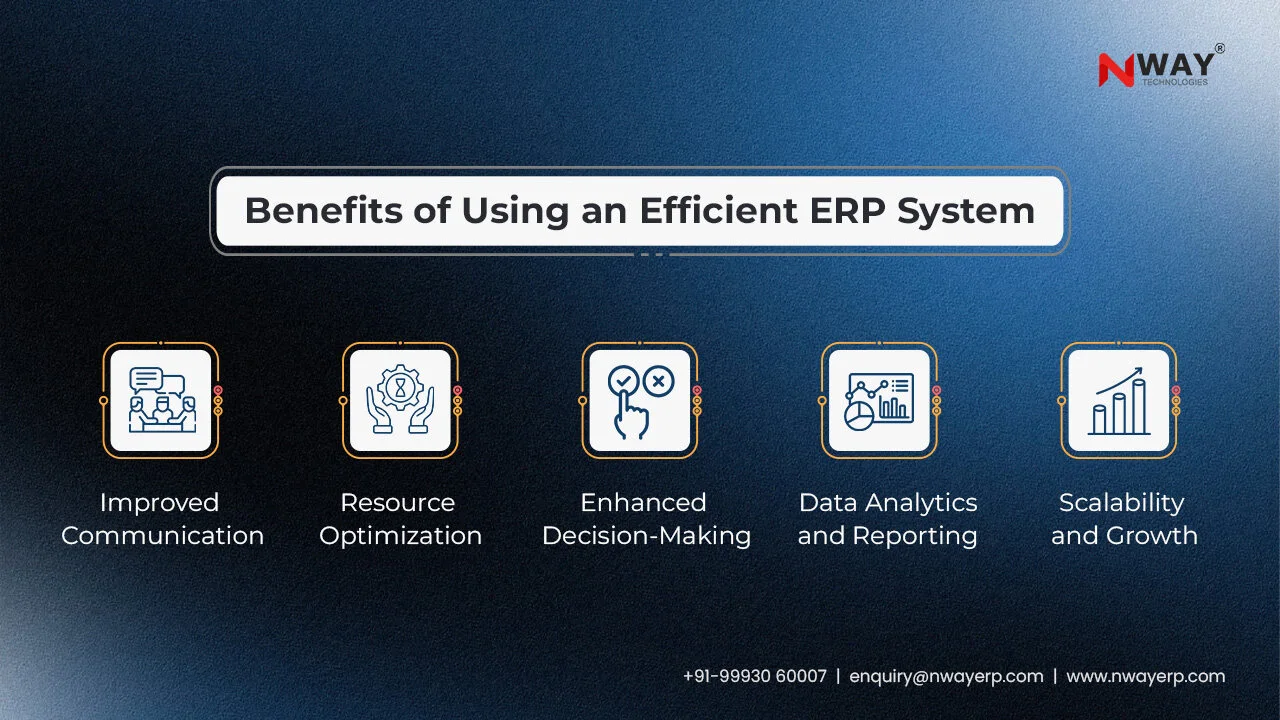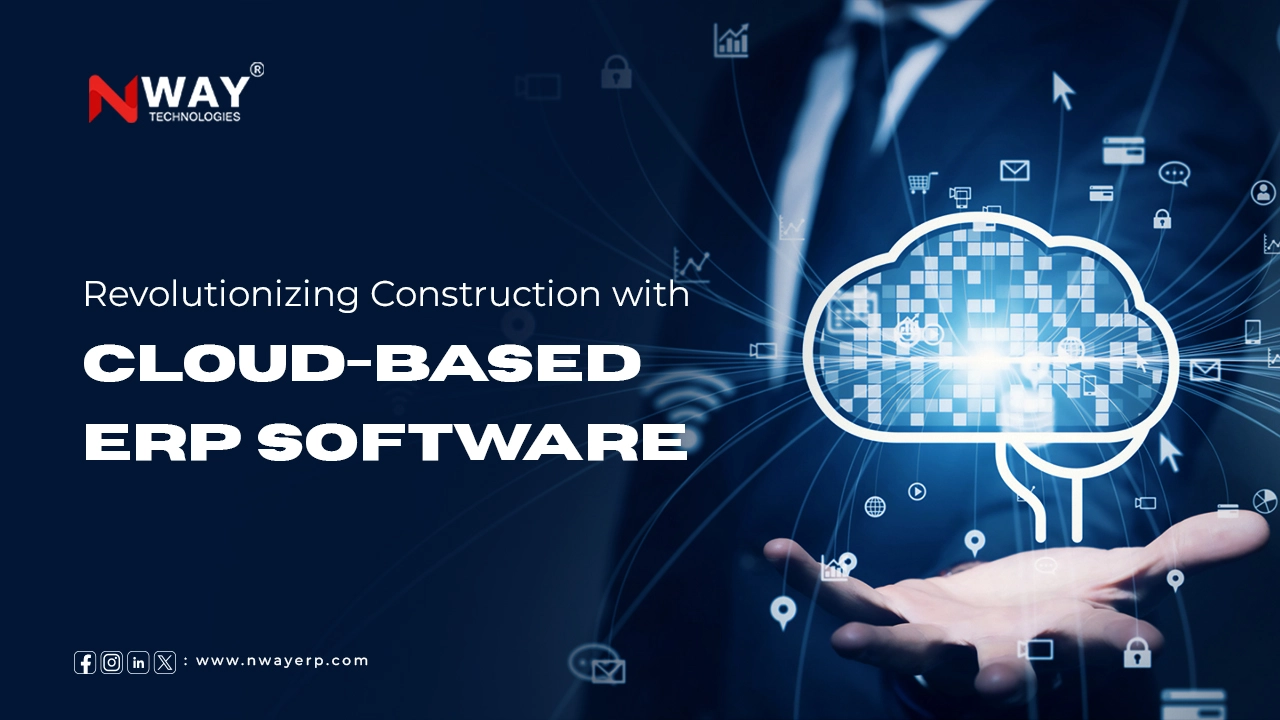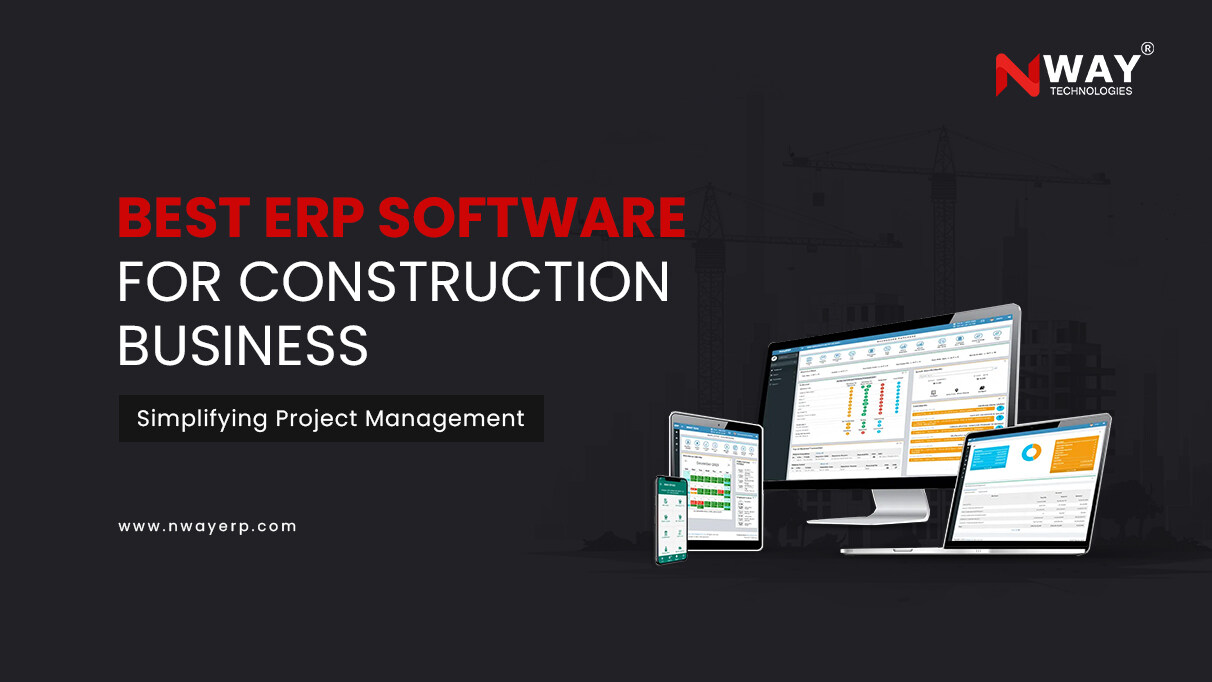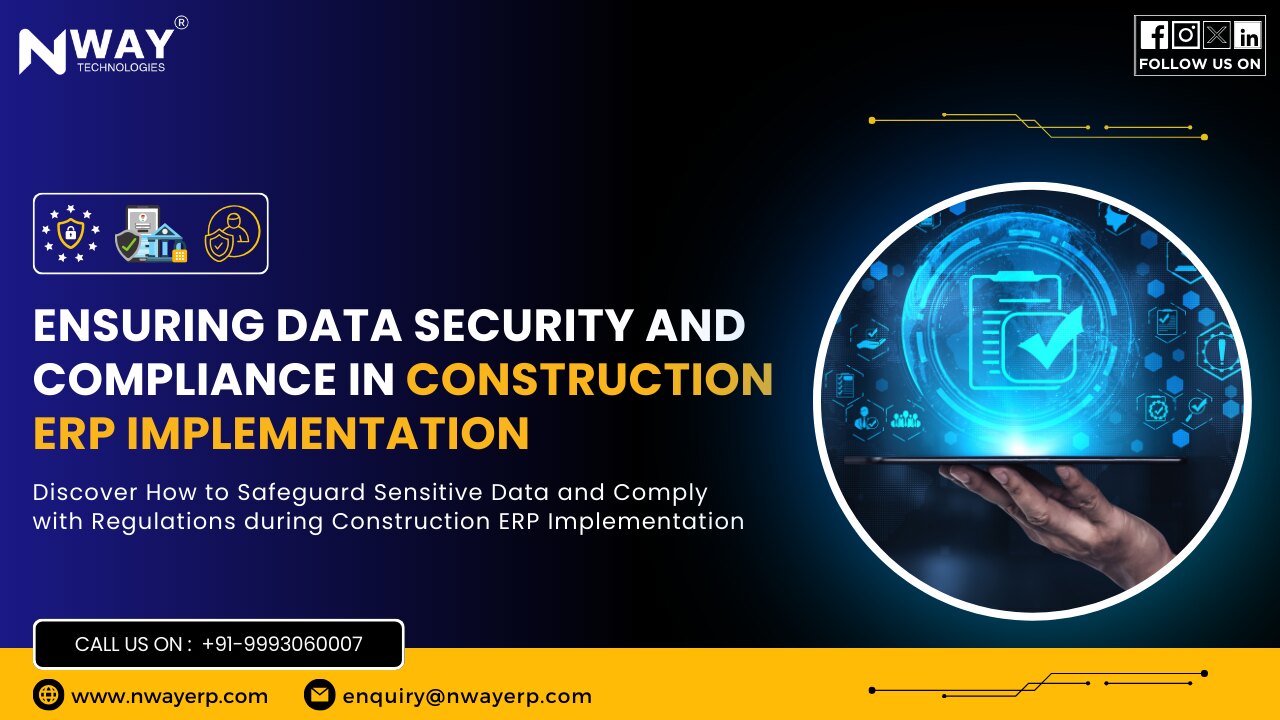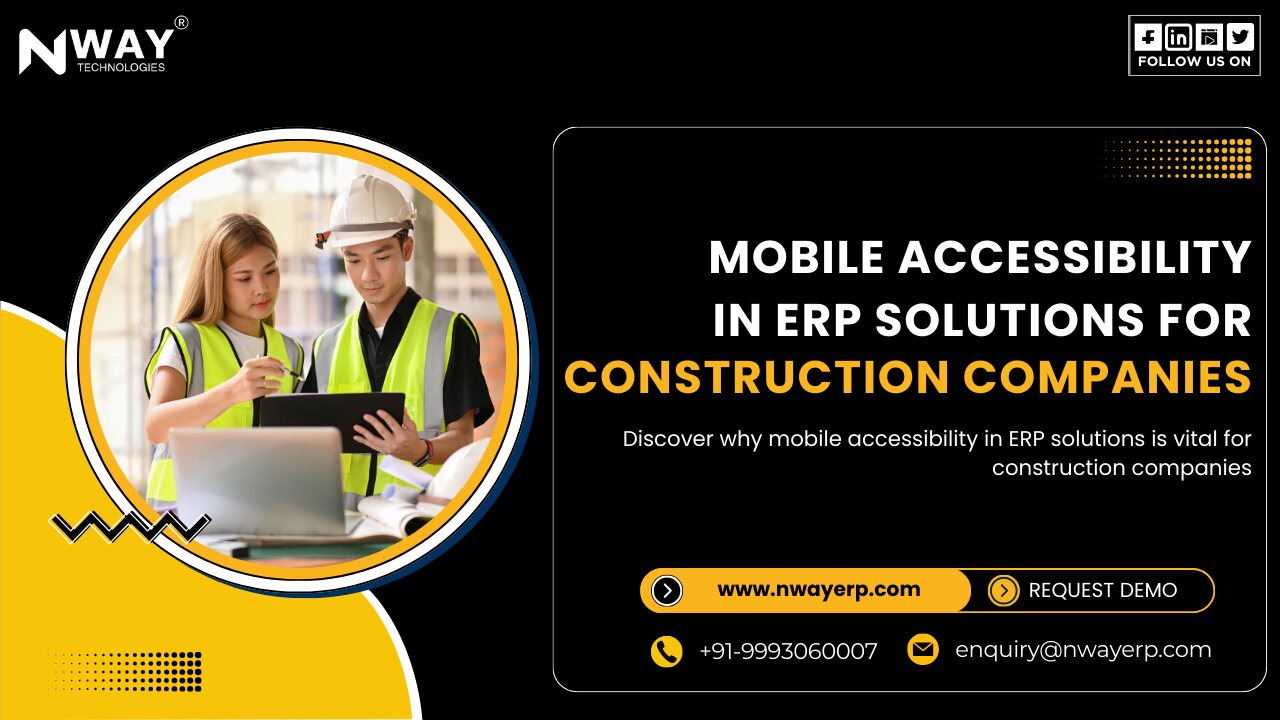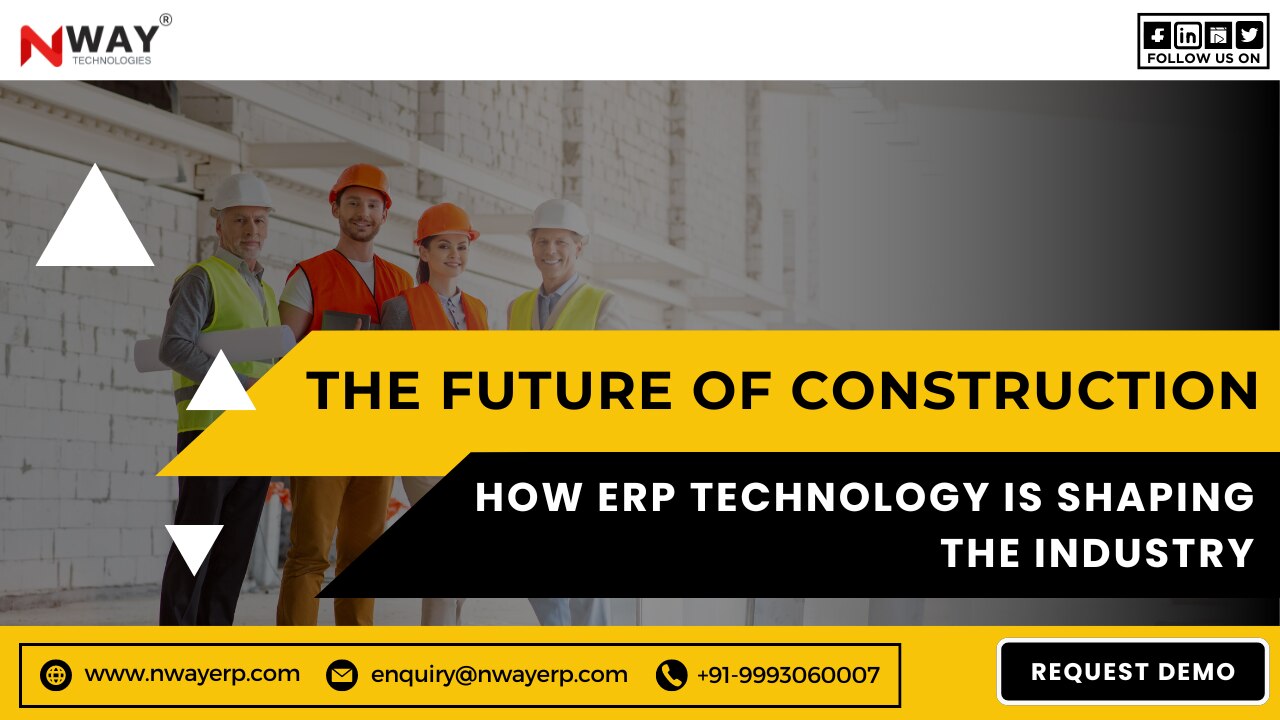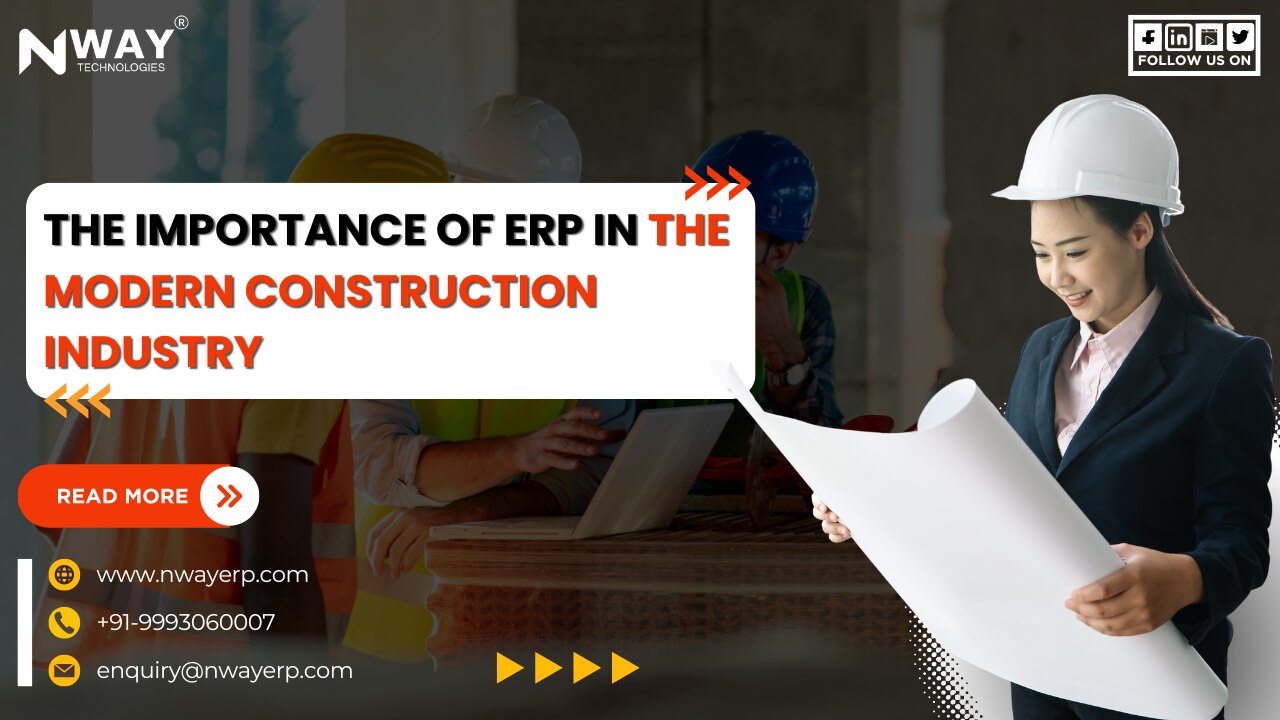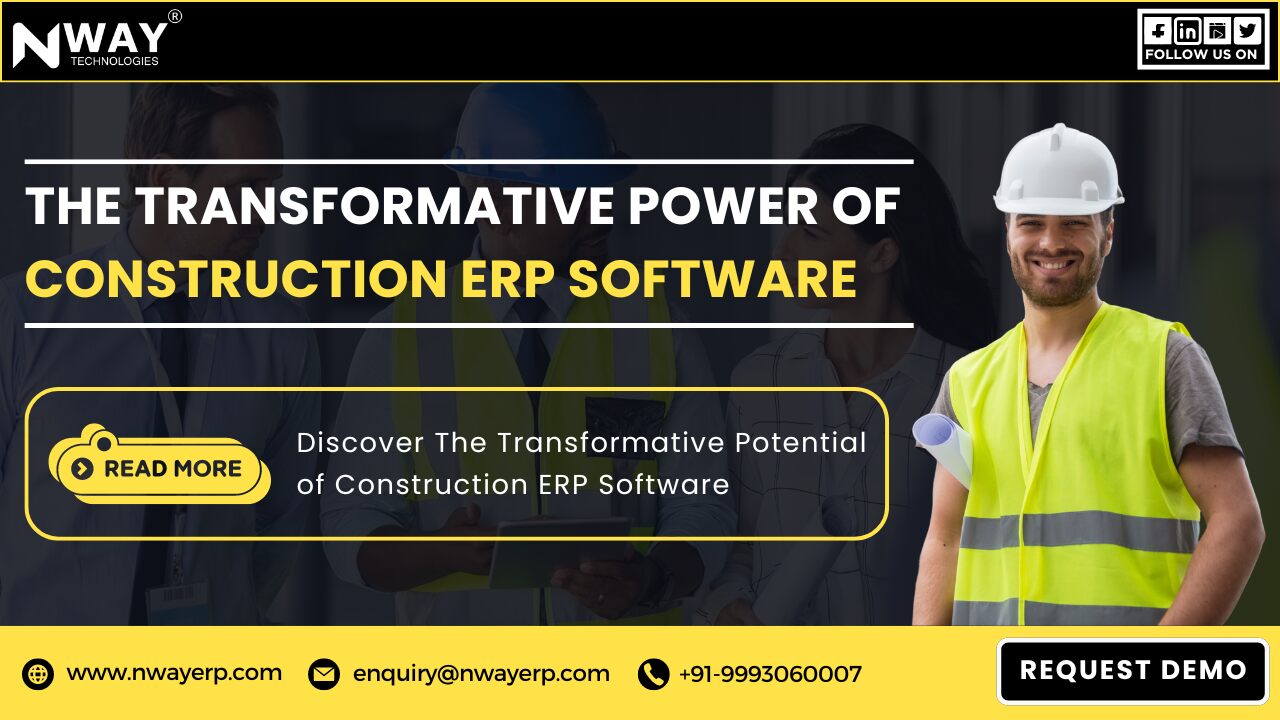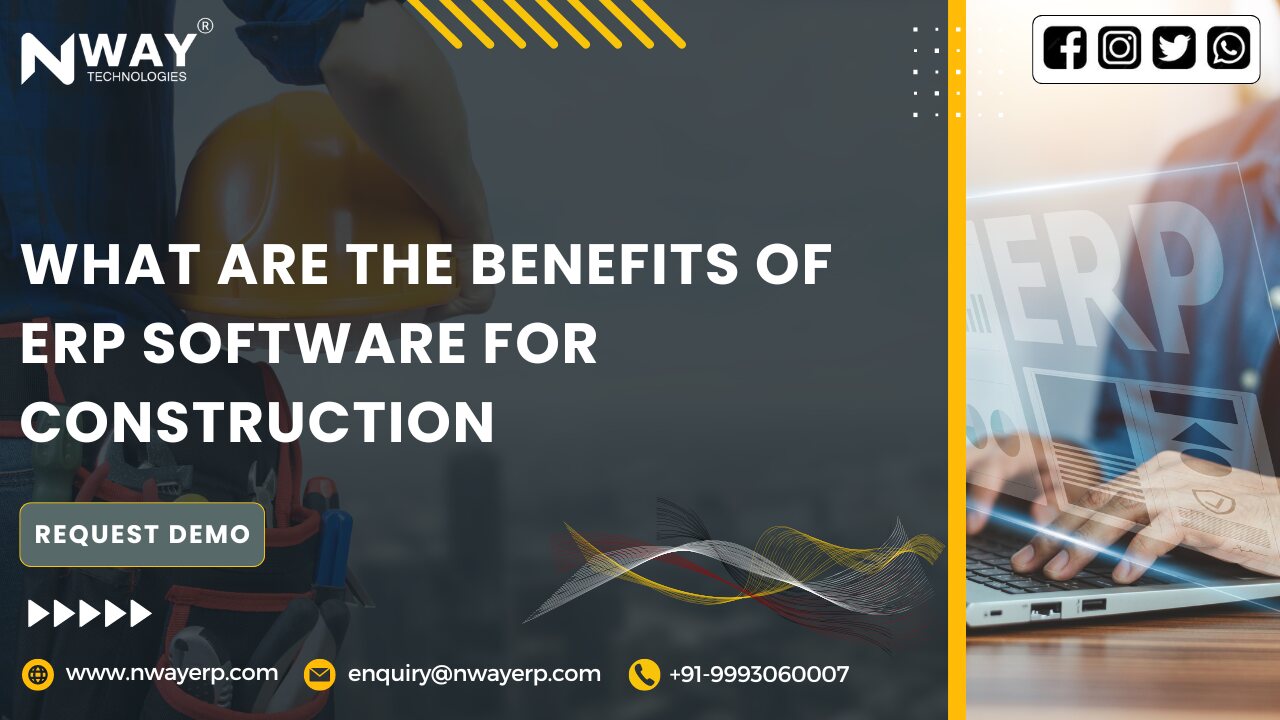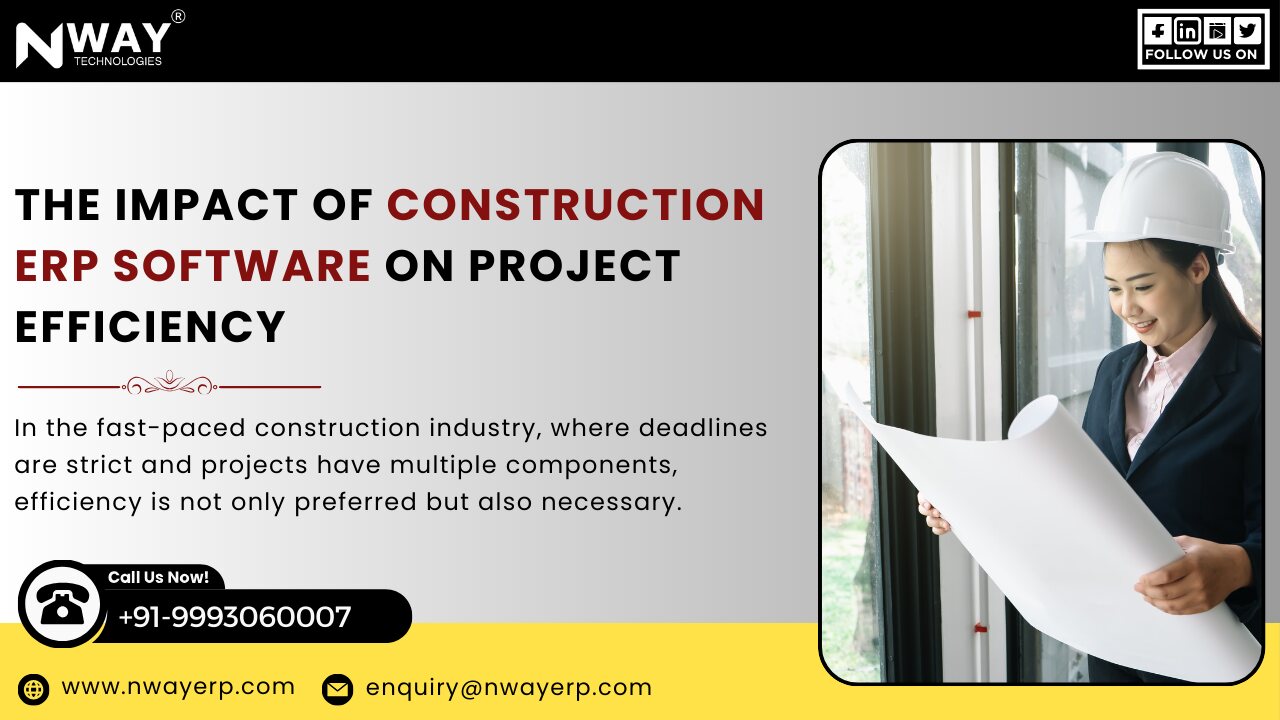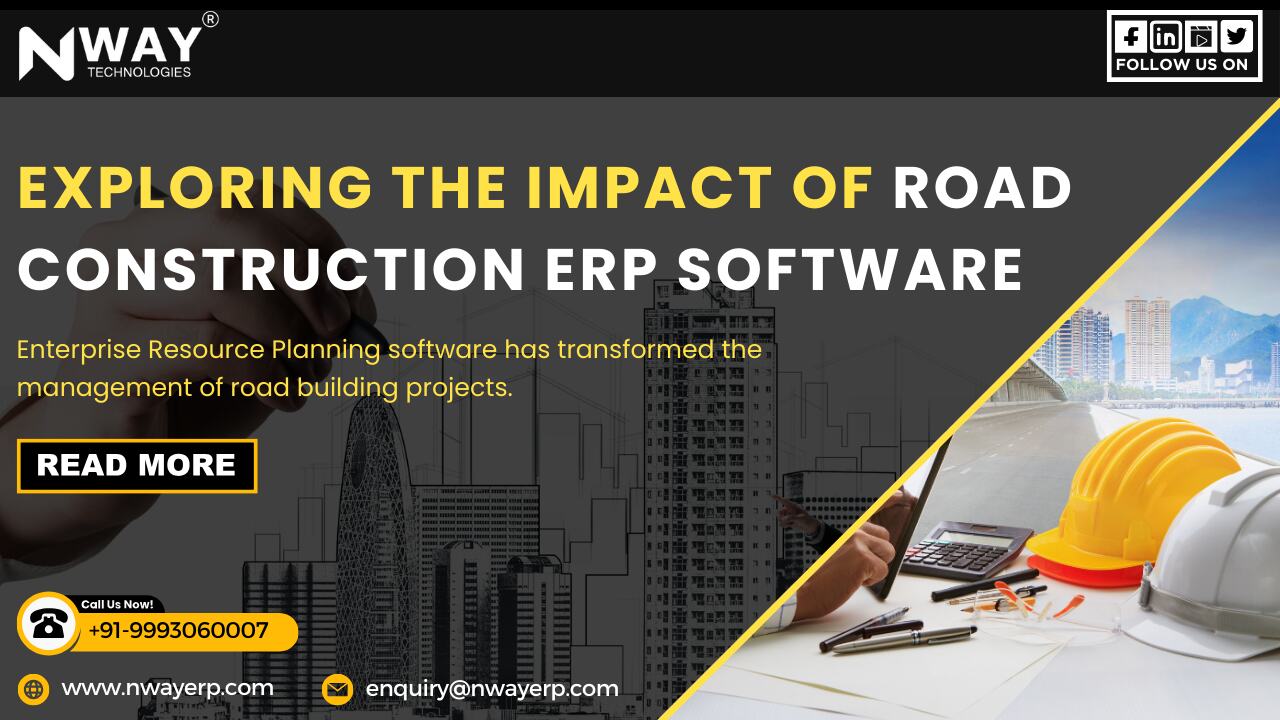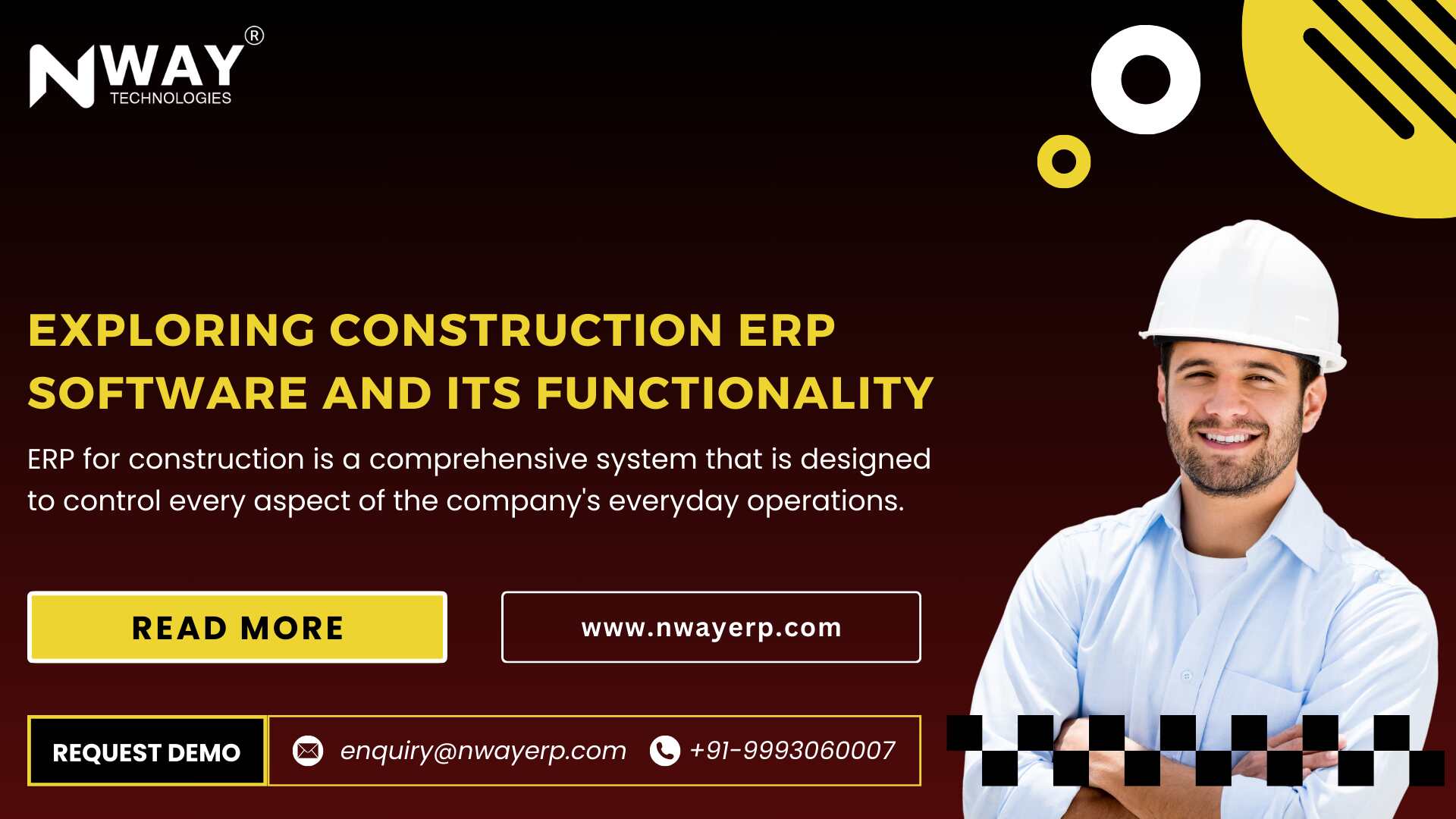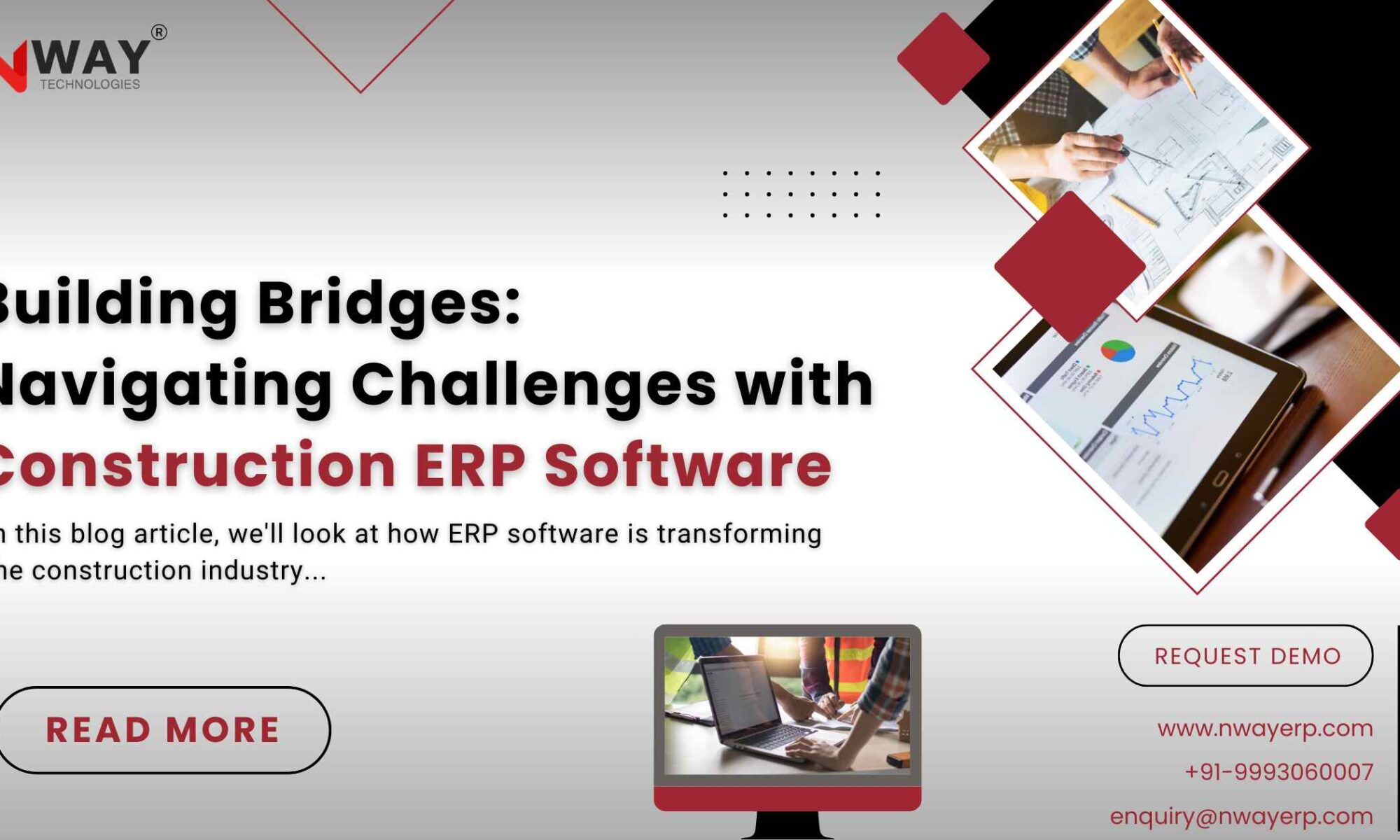In a world, where everything is digitized, the construction industry is also taking a curve to opt for ERP software that can help solve their day-to-day practices. As a game-changer for the industry, it brings new revolutionary steps to help companies groom their internal and external operations.
Let’s deep dive into what is ERP software and how a construction company can benefit from it.
What is ERP Software?
ERP, a short form of Enterprise Resource Planning, is a software that integrates with businesses and provides a single unified platform to control all operations.
What is Construction ERP Software?
Construction companies typically cater to areas like road construction, real estate, pipelines, stone crushing, ready-mix concrete, mines & quarries, and more. These companies involve various operations, projects, and locations. It becomes necessary to manage every project, check its operation, and meet location requirements efficiently. Construction ERP software helps meet the specific requirements of companies seeking effective management among contractors, materials, locations, plants, and costs across multiple projects and sites.
Common Challenges Faced by the Construction Industry
Ineffective Communication
In the construction industry, it becomes difficult to communicate the exact information at the right time to the right person and location. Because of manual processes, various stakeholders, such as contractors, subcontractors, and suppliers, often need to work in silos, leading to delays, miscommunication, and chaos.
Cost Overruns
Inefficient allocation of resources often leads to cost overruns. Construction companies following the traditional methods to handle projects results in unexpected expenses, poor cost estimation, and ineffective use of the best available resources.
Project Overlapping
In today’s time, handling multiple projects with manual or traditional methods is difficult. It results in project overlapping, delays, labor mismanagement, supply chain disruptions, and many other issues.
Regulatory Compliance
Construction companies adhere to various regulations and standards, which becomes complex and time-consuming. A breach in any compliance management leads to various unwanted consequences and long paperwork delays.
ERP Modules that can help solve Construction Industry Challenges
ERP system is a centralized platform that allows companies to manage their business processes. It creates a systematic chain to streamline the entire construction process.
Here is the list of modules that can consolidate information in a single platform, and provide a proper blend among all the departments, teams, projects, and locations.
Procurement & Inventory Management
A robust procurement module can help companies streamline the entire purchase process, it helps in easing out vendor management, requisition management, quotation management, and purchase order management. It manages the entire supply chain and ensures on-time delivery to the desired location. It also integrates with inventory and finance modules maintaining optimal inventory levels and efficient account management.
Financial Management
With a robust financial management system, companies can effectively operate budgeting, track expenses, and control costs. It manages accounting functions to administer invoices, payments, and payroll along with providing actual cost analysis. This module also regulates multiple invoices and maintains audit trails, enhancing transparency and security.
Project Management
Project Management is often one of the most important points of view on which construction industries need to be focused. An efficient Construction ERP Software provides project management software that enables detailed project planning and scheduling, allowing managers to handle multiple projects at a time. Creating a centralized system also gives the managers the right to handle various projects from different locations from one single head office.
Human Resource Management
HR management is essential in the construction industry. With construction ERP software, you can effectively manage payroll, attendance, labor allocation, and a lot more. The system facilitates tracking and certification of the right personnel assigned to the appropriate projects. It also handles recruitment, training, and performance evaluations, and enhances workforce productivity. This module also optimizes and reduces administrative burdens, strategic HR planning, and execution of construction projects.
Integration Capabilities of Construction ERP Software
One of the standout features of modern construction ERP software is its ability to integrate seamlessly with other technologies and systems, it also provides a comprehensive solution that manages the entire construction company. These integration capabilities provide centralized and accessible data ensuring smooth operations and efficiency.
Biometric Integration
With an effective ERP system, construction companies can seamlessly integrate biometric integrations. It provides tracking attendance, managing time sheets, and ensuring that only authorized personnel have access to required access to construction sites.
Weighbridge Integration with Camera
Integrating weighbridges with ERP systems and cameras allows for accurate tracking of materials entering and leaving a construction site. It provides a record of the right quantities, reducing discrepancies and enhancing inventory management. The camera integration provides visual verification with an extra layer of security and accountability.
Boom Barrier and Fuel Dispenser Integration
Construction sites often have high traffic and require strict control over vehicle movement. ERP systems can integrate with boom barriers along with managing and monitoring the entry and exit of vehicles. Likewise, the fuel dispenser integration helps accurately track and allocate the correct vehicles or machinery and reduces wastage.
WhatsApp Integration
Integrating WhatsApp with ERP systems allows for instant communication and updates. Stakeholders can receive real-time notifications, alerts, and updates on their mobile devices, ensuring that everyone stays informed and connected.
E-Invoice and E-Way Bill Integration
E-invoicing and E-way billing integrations generate and manage invoices and transport documentation easily. It reduces manual errors, ensures compliance with tax regulations, and speeds up invoicing. It also provides real-time tracking of goods in transit, ensuring smooth logistics management.
GPS Integration
GPS technology is improving the way construction companies work, it allows real-time tracking of vehicles and equipment. It also encourages efficient fleet management, reduces downtime, and enhances the security of assets. It allows companies to monitor the location ensuring optimal usage and maintenance.
READ MORE : Revolutionizing the Construction Industry with the Best Construction ERP Software
Conclusion
ERP software for the construction industry can streamline operations, enhance collaboration, and provide real-time insights for better decision-making. It helps integrate various business functions into a single platform, achieving greater efficiency, reducing costs, and successfully delivering projects.
Opt for the best ERP software solution and create a more productive and profitable construction business. You can also reach out to NWAY ERP, one of the best construction ERP software to help you accommodate the best of your services. Contact now to discuss with one of the experts and learn more.
